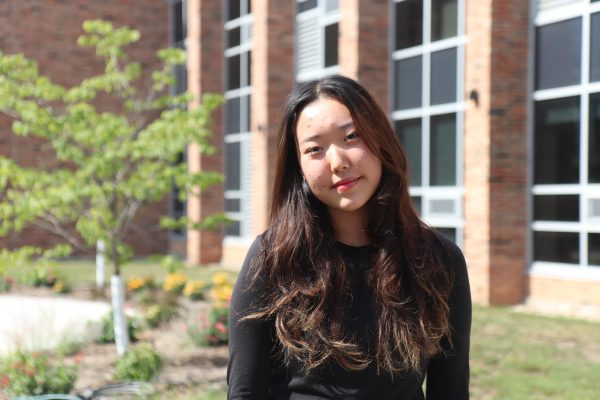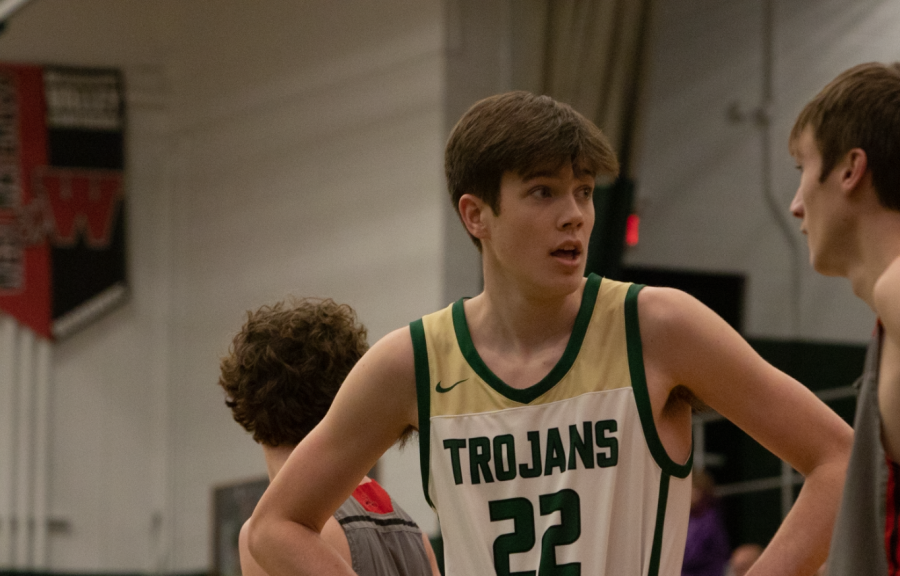Burnt Out
High school and college students explore the causes, obligations, and pressures that lead to burnout
‘Burnt out’. To the vast majority, this phrase might provoke a particular image in their head: a tired, middle-aged adult working 9-5 for years on end. Contrary to the normal belief, high school and college students are constantly battling the effects of societal pressure, burnout, and deteriorating mental health.
Students often juggle numerous activities in the active pursuit of trying out a new skill, ensuing a hobby, or pursuing their true passions. But some report that the vast amount of activities, on top of academics and maintaining a social life, can disrupt the delicate balance between following their goals and experiencing burnout.
Tess DeGrazia ‘23 reminisces on her immersion in theater at an early age, and the profound impact it has had on her life. “My mom was on Broadway. She’s inspired me my entire life to do [theater], and I’ve found a lot of my passion through her and being inspired by what she’s done.” DeGrazia also comments on the effect that juggling many activities has had on her mental health. “Last year, I decided I wasn’t going to go on the theater path. I was in a place where I didn’t feel connected to myself musically…‘I’m not going to do it, I don’t have time for this.’” DeGrazia notes that her passion for pursuing theater often prevailed over her doubts. “Over the summer, it just clicked, and I worked really hard.”
Students note that courseload burdens often overwhelm them, in addition to their numerous activities. “In my senior year, the thing that took up the most of my time was school work. But I was taking quite a bit of AP classes, not so much, but I usually spent most of my time doing homework and doing projects for those classes.” Freshman at UIowa Jennie Seo ‘22 describes the pressures of academics along with her numerous activities.
Seo also recalls various methods that she utilized to remain efficient. “I’d try to get as much stuff as I could done during the school day and also after I came back from school so that I’d be able to go to sleep at a normal time, then wake up and do it all over again, and I wouldn’t get tired.”
Taejune Yoon ‘21, a sophomore attending Northwestern University, recalls that procrastination was a massive effect of experiencing burnout. “From deadline to deadline, I procrastinated every single time, so I would just push everything off to the very end—in the end I did manage to finish everything. Although I got everything done, it wasn’t efficient.”
University of Iowa student Sanmati Thangavel ’20 states how the transition from online to in-person school wasn’t an easy shift on her schedule, ultimately taking a toll on her mental health. “I was getting less sleep, I was definitely stressed a lot, and that’s because I had nothing planned—really make sure you’re taking time to eat and plan your day minute-by-minute.”
Dr. John Wadsworth, coordinator of the Mental Health Counseling Program at the University of Iowa, reports that the pressures of multitasking are only the start of a slippery slope. “The reason people tend to get to the point where they feel like they’re under stress is when they feel like they have taken on obligations to too many things. Sometimes it’s not just doing too many things, but it’s having the feeling inside that, ‘I’m obligated, I have to do this,’ and then people don’t have choices anymore.” Wadsworth also notes that getting burnt out from taking on too many commitments could lead to more serious health effects, such as clinical depression and sleep deprivation.
West High Orchestra Director Jon Welch frequently notices these effects beginning to form with his students. “At particular times of the year…you can see the weight of the world on their shoulders, and you can definitely feel it in the rehearsal, with the speed at which we are getting things done.”
West High Guidance Counselor Paul Breitbach notes that academic validation often facilitates burnout. “Because education is a priority in [the West High] community, students feel they must excel, and they often compare themselves to their peers.” Seeking validation is exemplified through students comparing themselves to the standards presented around them. This often leads to students taking on excessive obligations, while setting unrealistic timelines and goals—a self-perpetuating cycle driven by societal pressures.
Dr. Wadsworth lists various reflection strategies students should adopt in order to mitigate burnout: “’How does that fit with my dreams? Is that going to get me to my dreams or is it going to get me someone else’s dreams?’”
Numerous students report that they employ a variety of coping strategies for dealing with burnout and deteriorating mental health. Breaks were one method that a multitude of students recommended, be it short outdoor walks or long-term breaks as a mental reset. Another common method was to remain organized with time management strategies.
A study conducted by Harvard Summer School suggests adopting numerous stress management strategies, including “keeping a journal getting plenty of exercise, eating healthy, regular meals, making sure you get enough sleep, meditating, downloading an app that provides relaxation exercises (such as deep breathing or visualization) or tips for practicing mindfulness.”
Breitbach recommends entertainment as a stress management alternative. “It is okay to have downtime each day to re-energize and refresh; schedule fun into everyday life.”
While college applications, graduation, and other responsibilities are difficult to manage, seniors often report that there are numerous driving factors that motivate them to push through senior year. DeGrazia ‘23 discusses how her friendships motivate her. “[My friends] all do theater, so they definitely motivate me to keep doing it.” To McCaffery ’25, his driving factor is his family. “My parents both played at a high level, so they are good resources to go to. I can just talk to them and they help me get better.”
Participating in various activities also poses numerous benefits, from finding a supportive community to paving a way to earning educational opportunities. “I always based my interest on the pre-science area, things that would give me an interest in terms of interacting with people, ways I could help out within my community, and ways to build a stronger mindset within myself. Playing volleyball really helped with that, and volunteering also helped, also did job shadowing, and volunteering at a research lab back in high school, so I just wanted to base my experiences help me with what I want to do in the future,” Thangavel reports. “[Extracurriculars] allow them to get to know a variety of other students and to have a break from the high expectations of their academics. It also helps students understand that in life they have to make choices,” Breitbach notes.
Finding the perfect balance between academics and extracurricular activities is something that most students continue to struggle with. Experiencing burnout is normal, but shouldn’t be normalized. Mental health is a critical aspect of a student’s quality of life, often overshadowed by students’ desire to perform well—regardless, mental health should remain a chief priority.
Your donation will support the student journalists of West High School. Your contribution will allow us to purchase Scholarship Yearbooks, newsroom equipment and cover our annual website hosting costs.

Shanza Sami is a junior at West High and this is her second year on staff. She is the Features Editor for the print publication. Outside of the newsroom,...

(she/her) Taelim is a sophomore at West High, and this is her first year on staff.




